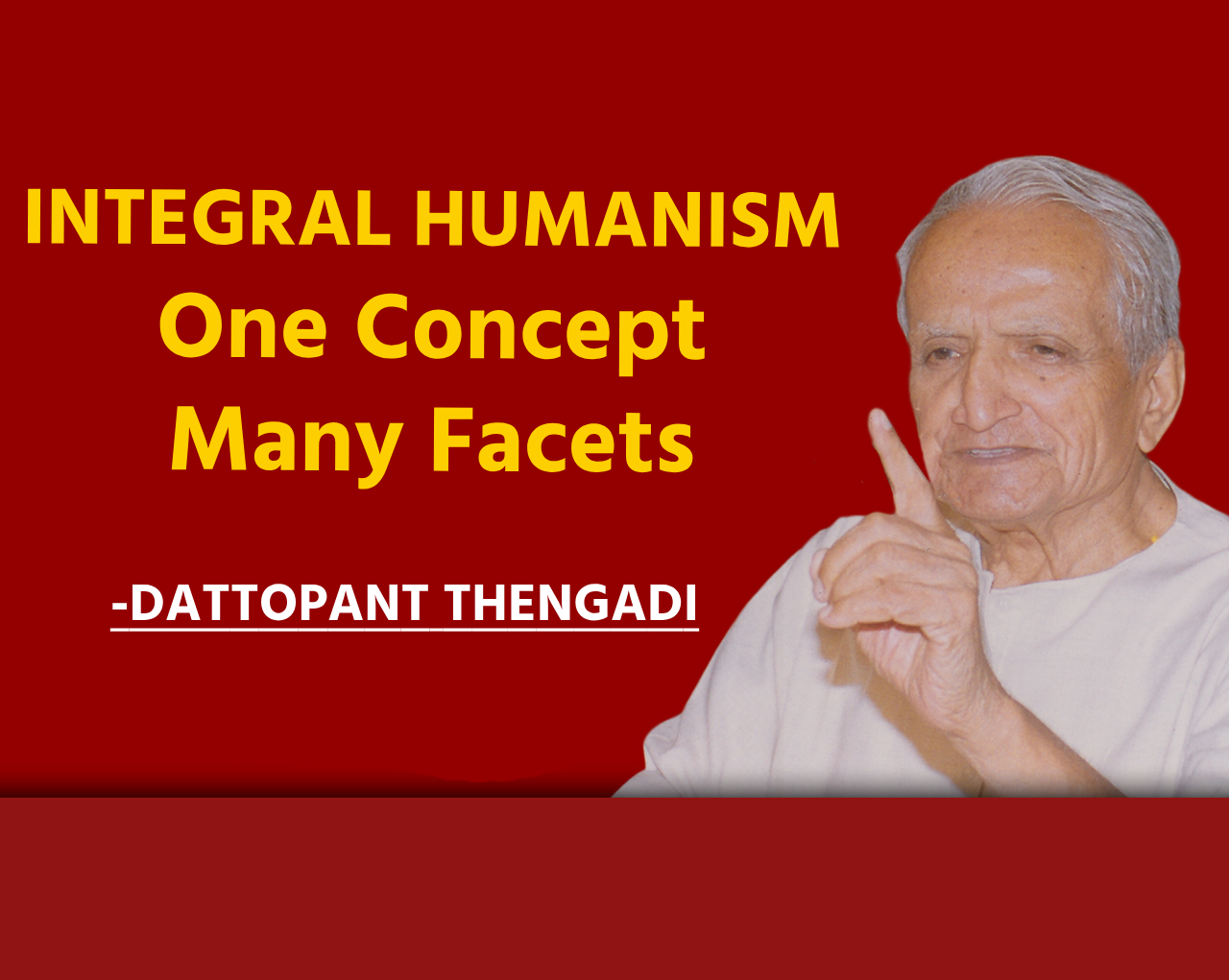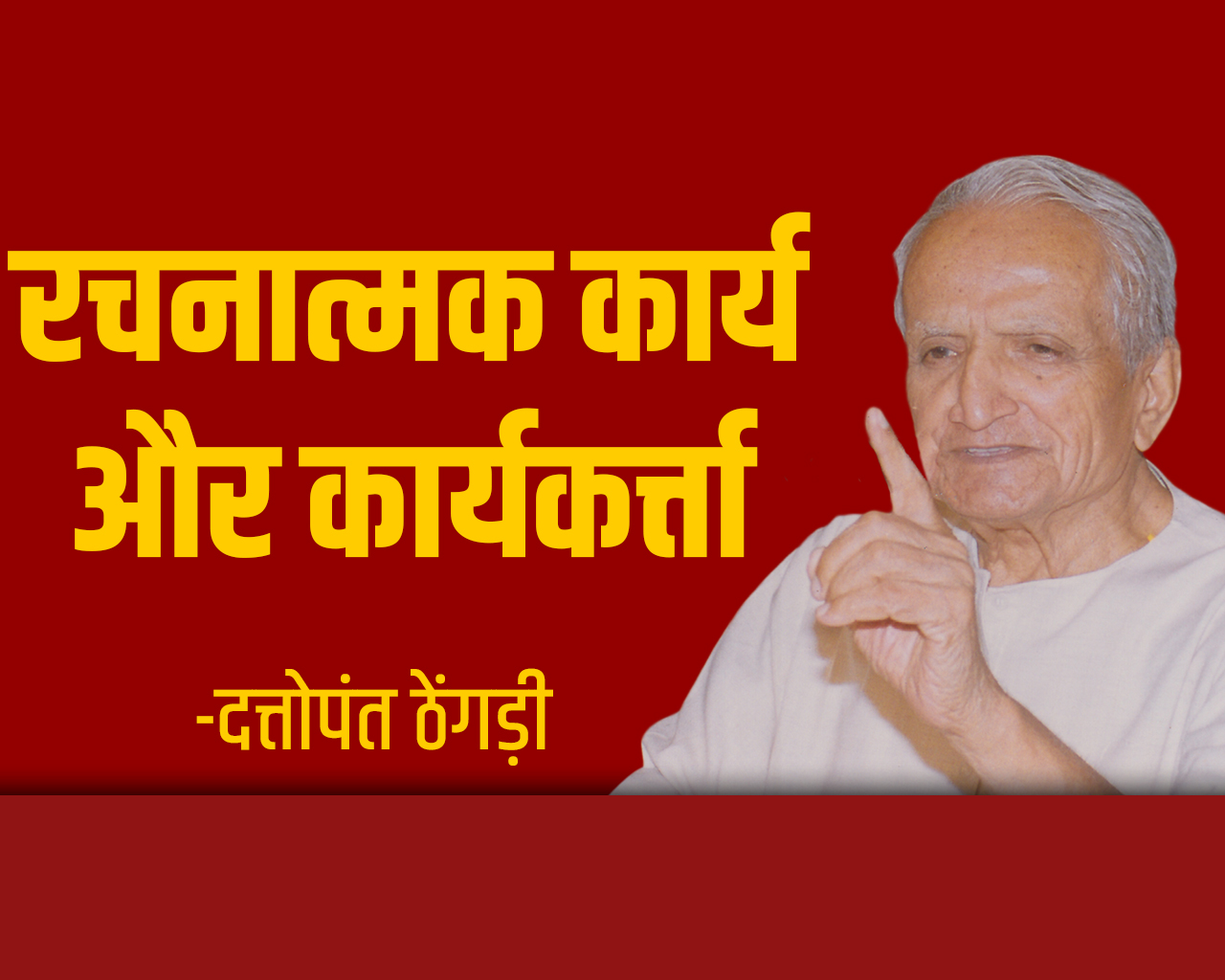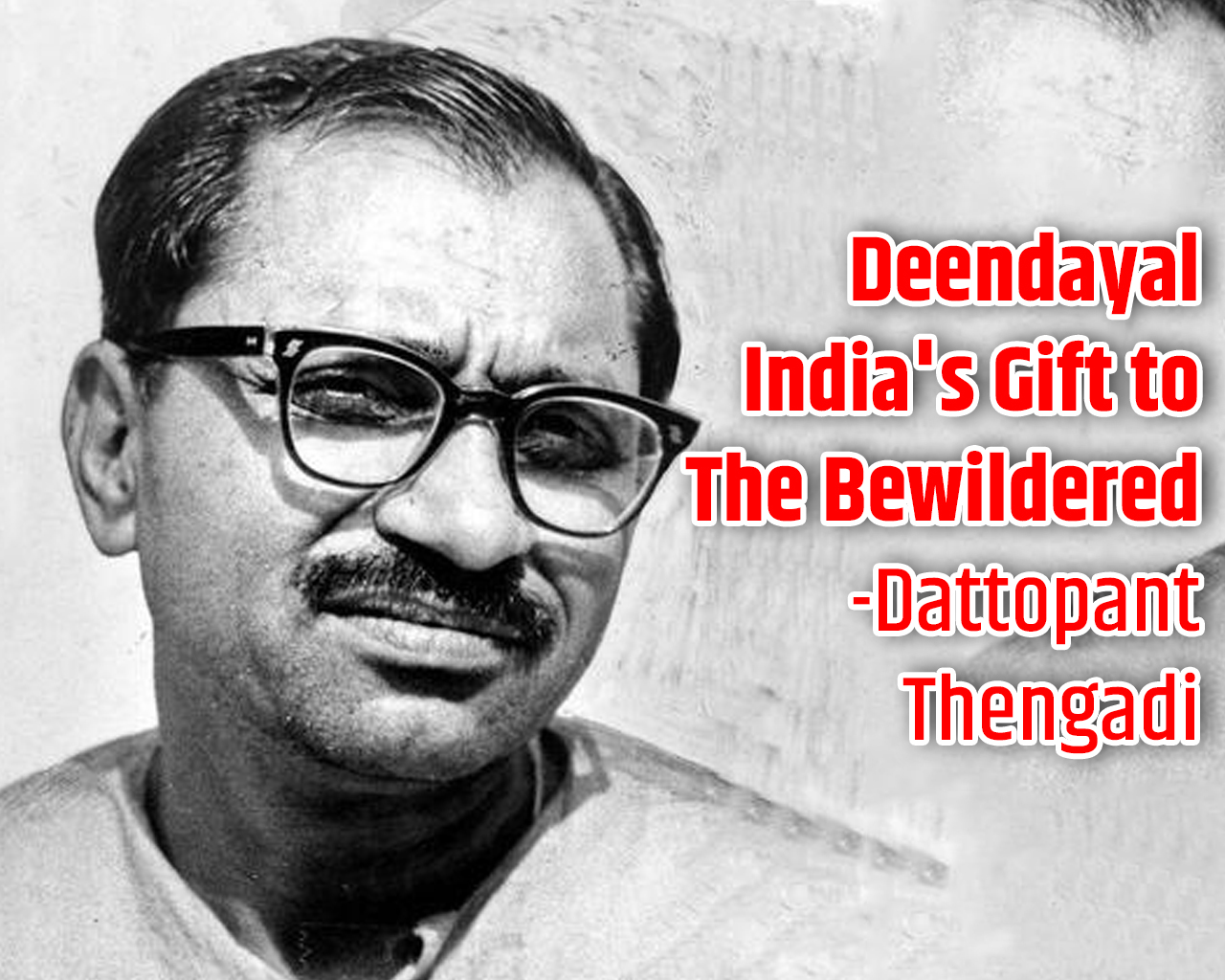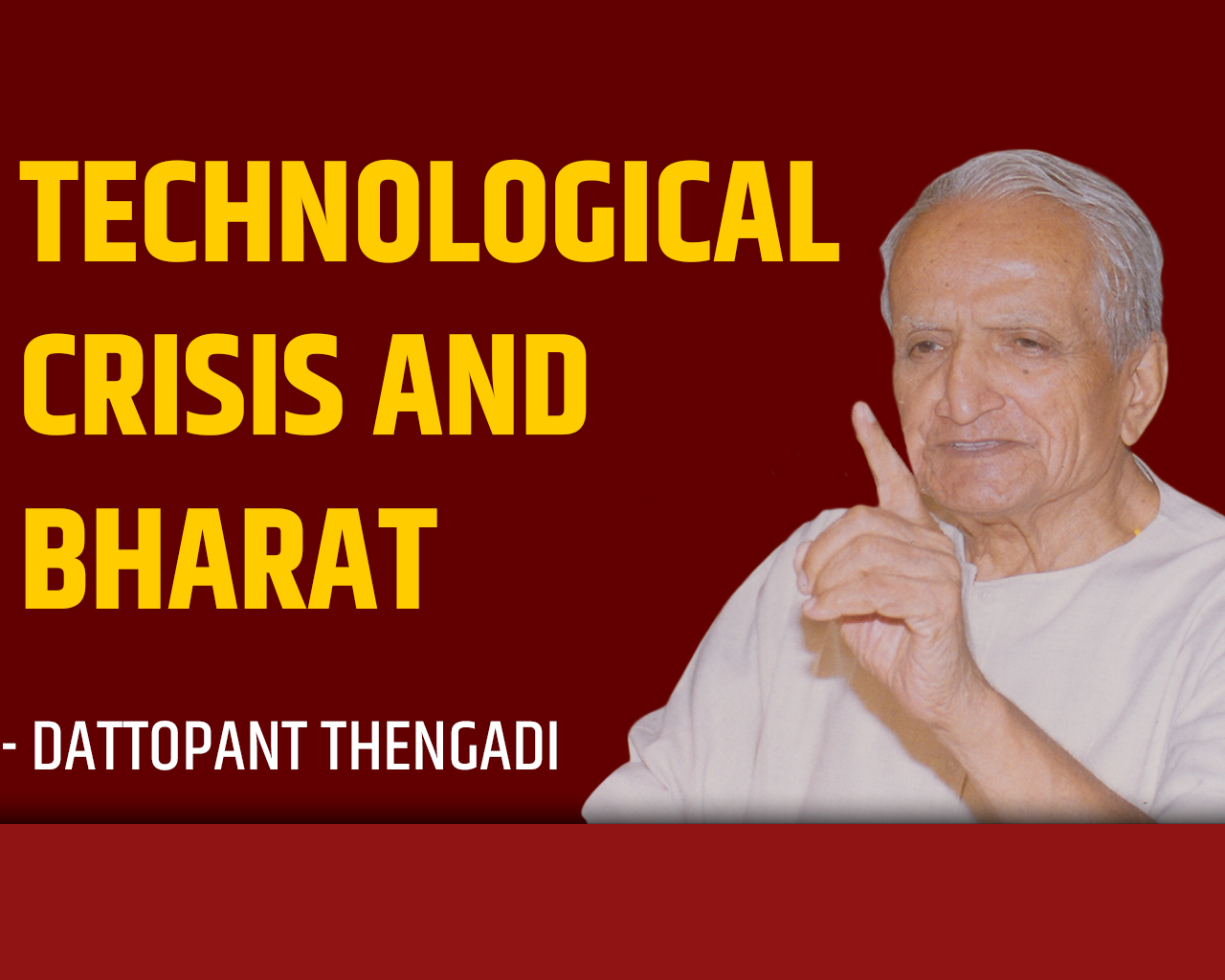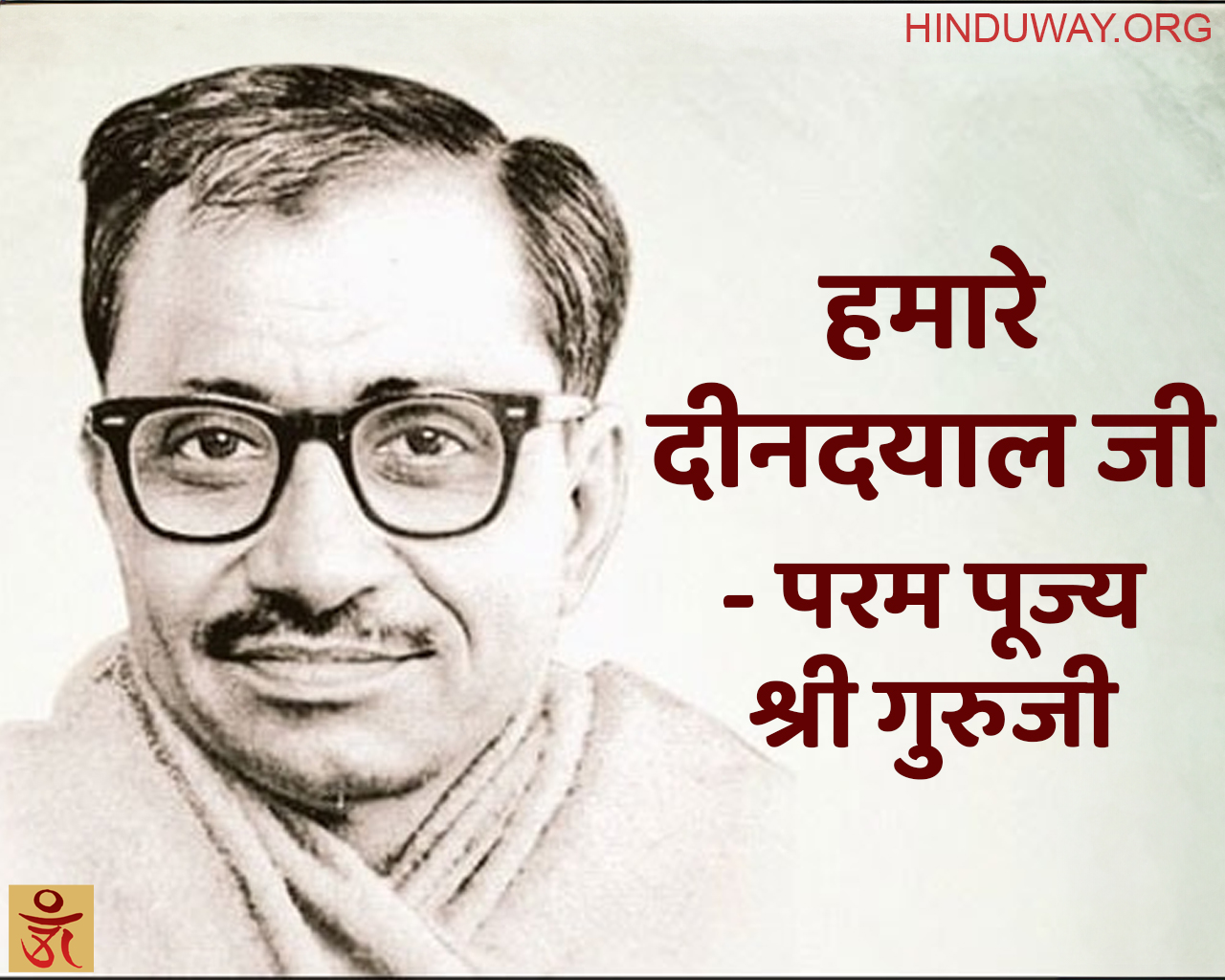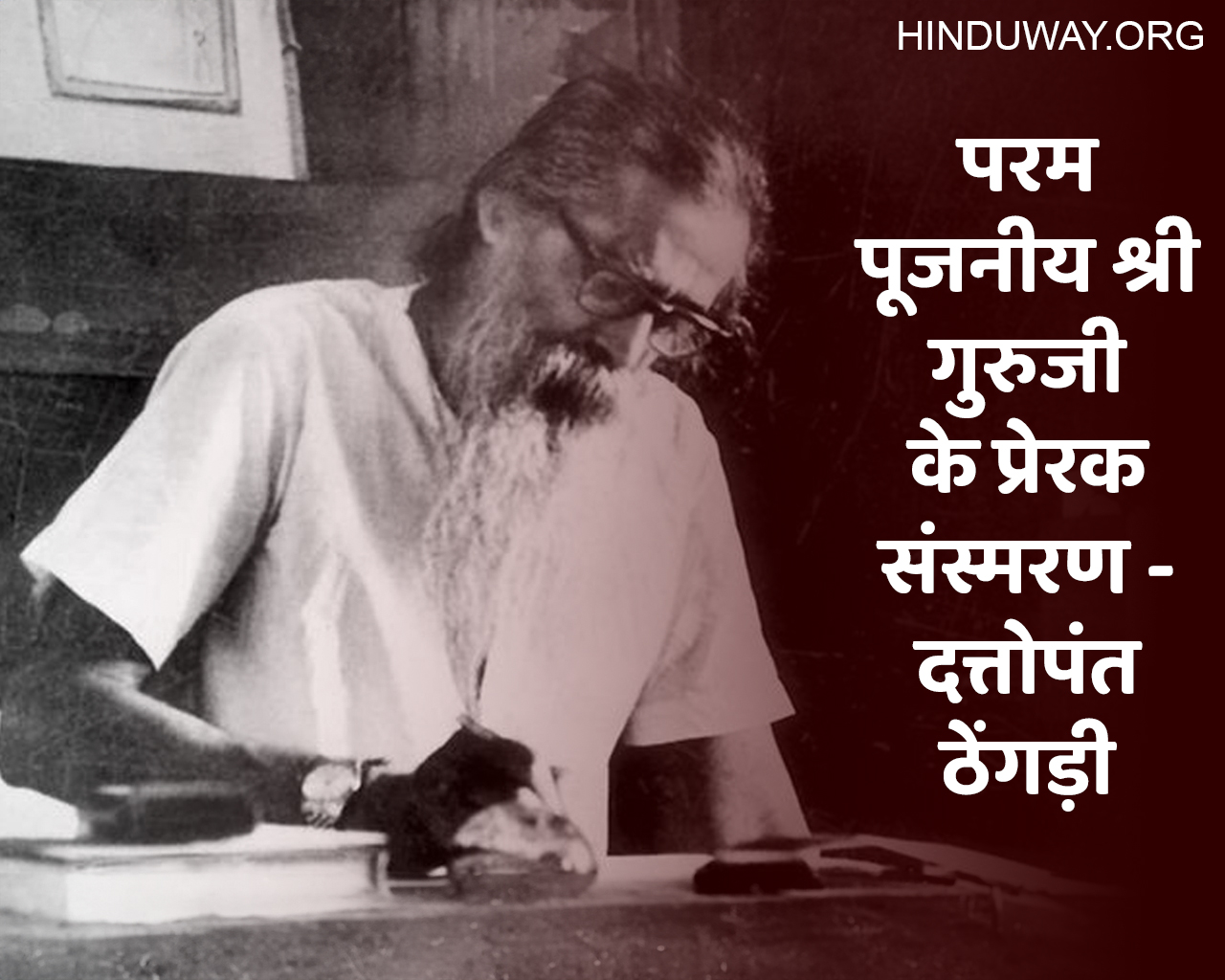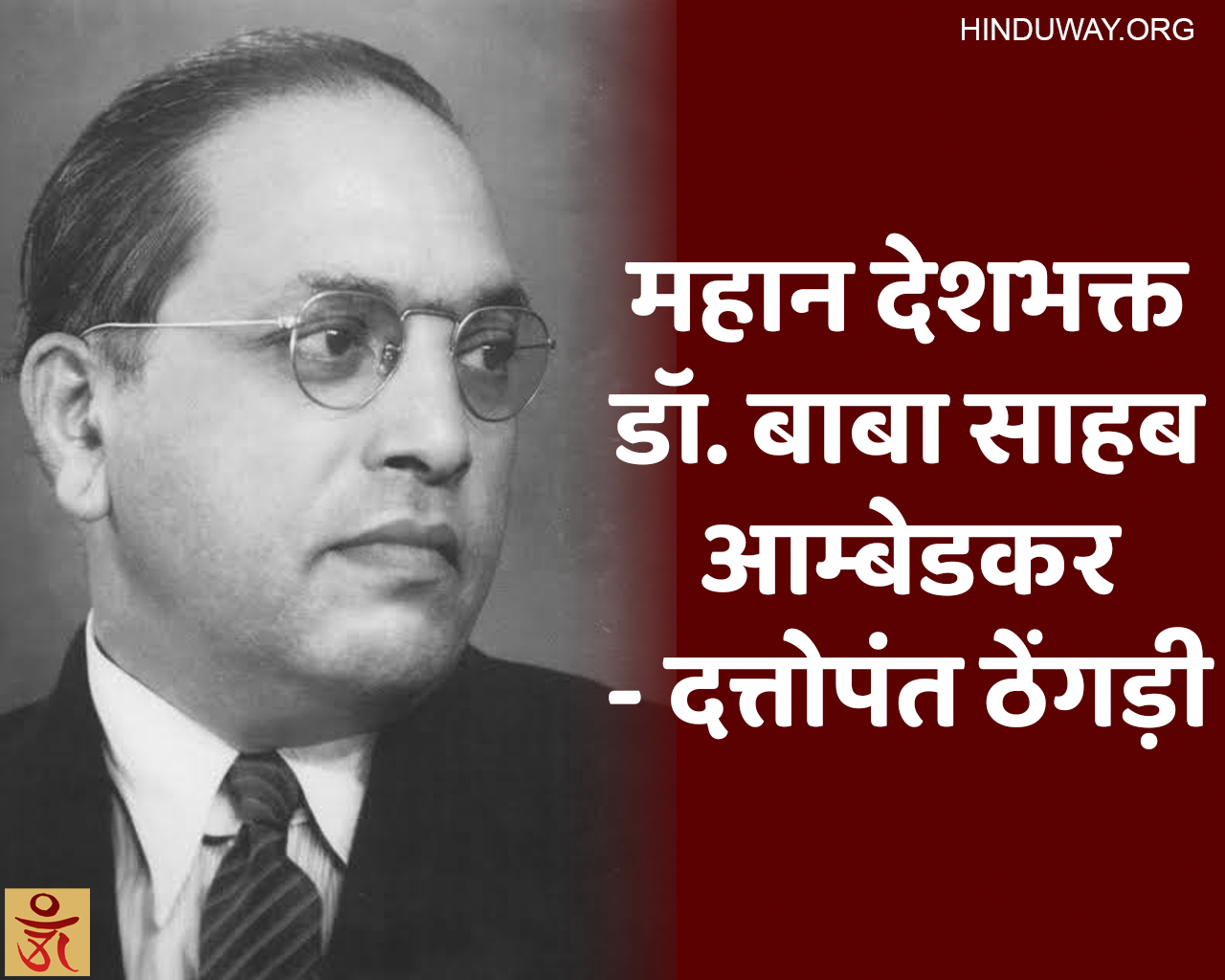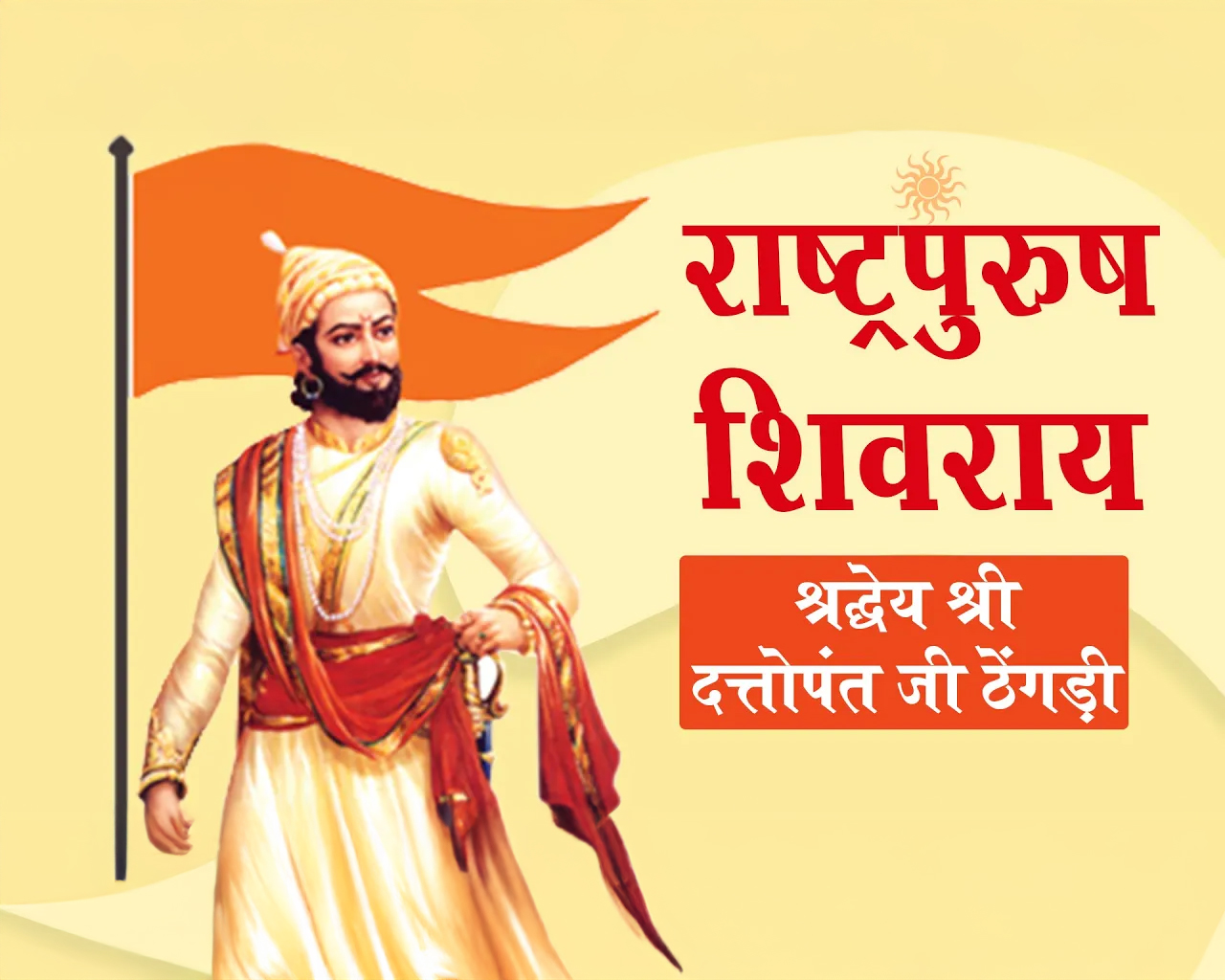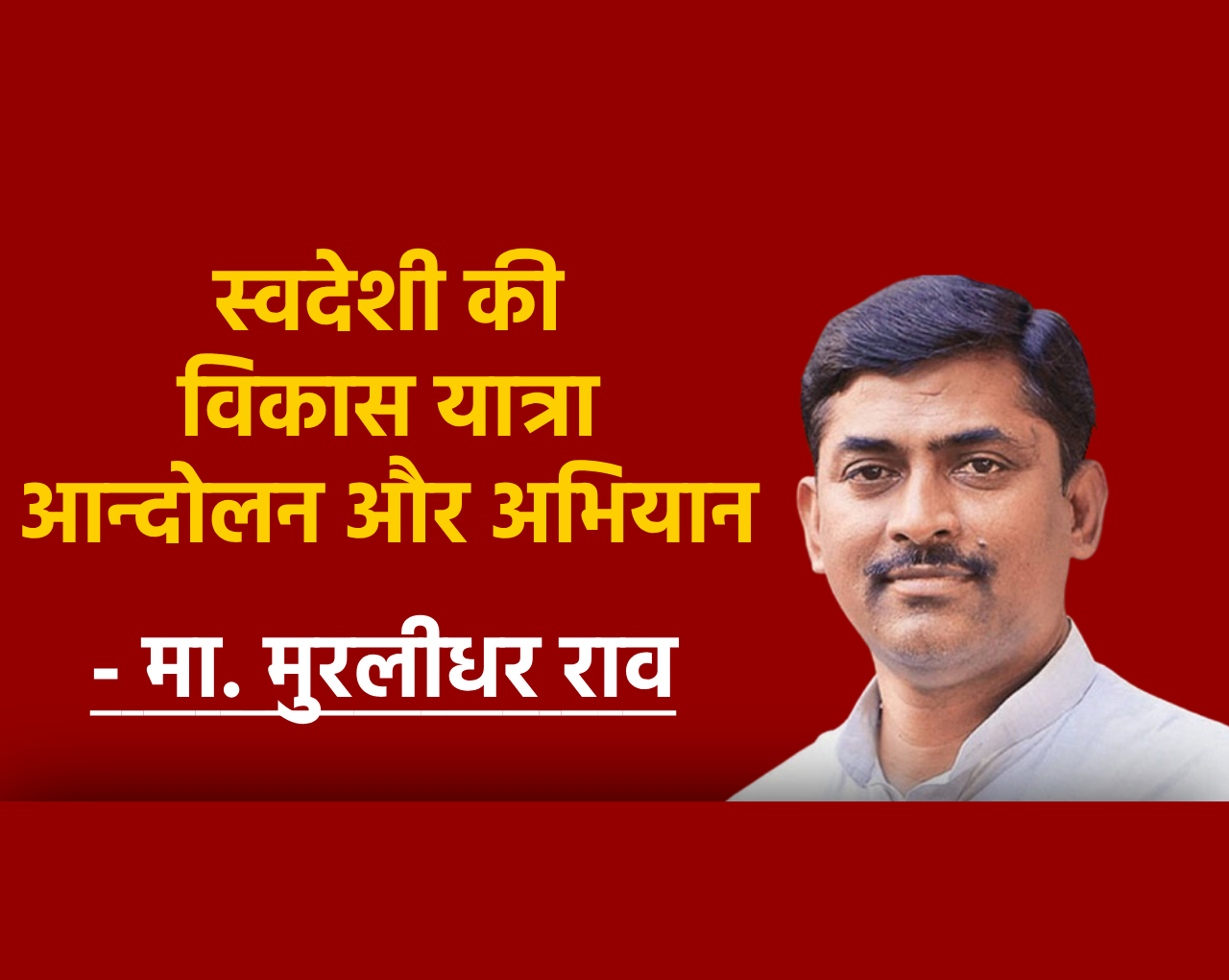PANDIT Deendayal Upadhyaya was a dedicated worker of the Rashtriya Swayamsevak Sangh. It is, therefore, sometimes asked whether the theory of Integral Humanism which he propounded was an extension of Hinduism or an entirely new concept.
In answer it must be pointed out that there is no theory as such of Hinduism. Perhaps the universal outlook through which the Hindus developed their philosophy of life has been considered an ‘ism’ or theory and called Hinduism. As a matter of fact, Hinduism cannot be fitted within the frame-work of any ‘ism’. It is a complete and all-embracing philosophy of life. Consequently, no new theory can be described as a new name for Hinduism.
At the same time, it would not be wrong to say that the concept of Integral Humanism is a new manifestation of the age-old philosophy of life known as Hinduism.
Congruent with Gandhian Thought
Gandhism is based upon traditional Hindu philosophy. Therefore, Integral Humanism and Gandhism are moving in the same direction. However, because of his multifarious activities Gandhiji could not fully explain the various facets of his philosophy, and it was the same case with Deendayalji in respect of his theory. Still I would say that the origin and style of functioning of both theories are congruent.
So far as similarity in the economic thought of Pandit Deendayal and that of the Janata Party is concerned, one can at the most say that the concepts of economic decentralisation as propounded by Deendayalji and Shri Charan Singh are identical. But it is not possible to go beyond this for the present, as the Janata Party has not yet clearly defined its concept of decentralisation.
Emphasis on Individual
In the present institutional set-up of our society, which is heavily politics-oriented, Integral Humanism, with its emphasis on the individual, could act as a corrective influence. The overbearing influence of politics in our social life has to be curbed in the interest of purifying our socio-individual life.
Curiously enough, this influence of politics on life is a legacy of the western civilisation. For while social life in western countries has not been so much affected by political ups and downs, the impact of politics on Indian social life has been decisive.
There is some explanation for this seeming contradiction. In the first place there are two main social systems in the west, the communist system and the democratic system. In the communist system the State is all in all, and even in democratic countries the jurisdiction of the State is much wider than has been envisaged in our culture.
Yugoslav Experiment
But in present times even communist countries have started to think that the jurisdiction of the State should be curtailed, and Yugoslavia is a case in point. Under the leadership of Marshal Tito an experiment is being made in that country since 1974, according to which socio-economic units are allowed to function autonomously and the State interferes only to ensure their smooth working.
Whether this experiment succeeds or fails, the important fact is that an experiment to seek curtailment of the jurisdiction of the State has been started. This is the beginning of the evolution of the concept of withering away of the State.
Integral Humanism, in which the main emphasis is on the individual, has the same direction as the Yugoslav experiment. It holds that the authority of the State over the society should go on progressively diminishing and socioeconomic units should become self-administered.
Unfortunately, having been deprived of independence for a very long time by alien rulers we have come to consider the State very important. We have come to give excessive importance to the apparatus of the State and cultivated the tendency to get everything of social importance done by the State. This has left us without individual or social initiative of any kind.
Longest and Shortest Route
Further, it is also understandable that in the immediate post-independence era, our social leaders, due to a desire for speedy progress of the country, may have attached undue importance to the State and not given enough importance to the idea of establishing self-administered autonomous, viable, socio-economic units. They might have realised that unless and until a self-administered society is established and the level of the common man elevated high enough for him to conduct the affairs of such a society, there would always be a serious lack of educational and cultural awakening. Therefore, they might have heavily banked upon the State for the fulfillment of this need. Otherwise this process of creating social consciousness in the entire society and raising the socio-cultural and educational standards of each and every individual would have consumed a long time.
Whatever the reason, the fact remains that the apparatus of the State attained undue importance, resulting in the all- pervading influence of politics on all strata of the society. The only way to reduce or restrict this influence is to create a national awakening and to raise the standard of consciousness of every individual.
But this path is full of difficulties. In the first place the common man himself does not wish to wake up, because this awakening is itself very painful. Secondly, those vested interests that have been maintaining their hold on the society see to it that there is no such awakening. And politicians are in the forefront of such an anti-national effort.
Still if leaders without any vested interests strive to create this social consciousness, and with that in view raise the standard of social awakening in the entire society, the influence of political and State institutions would automatically diminish proportionately. Of course this is a slow and long-drawn-out process. As M.N. Roy has put it:
“This is the longest route, but it is the only route, so it is the shortest also.”
J.P., M.N. Roy and Deendayal
It would be interesting to observe the basic similarity in the concept of total revolution put forth by J.P. and the Integral Humanism propounded by Pandit Deendayal Upadhyaya. Both ultimately conceive a party less democracy. But sometimes people wonder if such democracy is feasible in today’s circumstances.
The answer to this doubt is that party less democracy is in our blood. In fact, in the Indian scheme of things there were no parties. M.N. Roy has clearly said that so long as parties exist, culture in the true sense cannot evolve. He has stated that while a representative form of government can come up through the party system, a truly democratic government envisages a government run by the people themselves. In other words, only when the obstacle of political parties is removed will the evolution of a truly democratic system take place.
This concept of Roy is very similar to the concept of J.P. They are both fully consistent with the Indian tradition, and in the ultimate analysis both these concepts and Deendayal’s Integral Humanism are on the same level. However, as explained earlier, Deendayalji could not get sufficient time to spell out his concept in detail, and consequently it lacks the precision of the ideas of M.N. Roy and J.P. Had he lived longer he would have certainly brought such precision to his concept.
Suitable Social Instrument
The question whether J.P.’s total revolution or Deendayal’s Integral Humanism is more suitable for social reformation cannot be answered in categorical terms. This is primarily because while Integral Humanism is a more complete philosophy. J.P. has not yet defined or precisely explained what he means by total revolution. Actually total revolution is not a new phrase. It was originally used in British history, but there it had a different context.
Shri Jaya Prakash Narayan seems to have used the phrase rather loosely to convey his idea of an over-all change. But apart from the actual phrase the content of J.P.’s concept of total revolution and Deendayalji’s Integral Humanism is the same.
Having said this, I would like to point out that Integral Humanism is a philosophy of life, which total revolution is not. The latter does not give a total outlook on life. The concept of Integral Humanism does include the declared content of total revolution, but the two concepts are not co-extensive. The compass of Integral Humanism is much wider.
(Based on an interview given to a Marathi magazine by Shri Dattopant Thengadi, founder of Bharatiya Mazdoor Sangh)
| साभार संदर्भ |
| प्रस्तुत आलेख दीनदयाल शोधसंस्थान नई दिल्ली द्वारा सन्न 1978 में प्रकाशित पुस्तक “DESTINATION” से साभार लिया गया है। |

